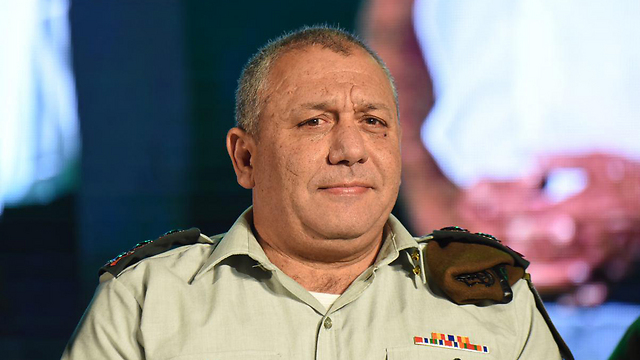IDF Chief of Staff Gadi Eisenkot gave a rare interview to a Saudi newspaper, calling for an international coalition against Iran.
“You can see the Iranian plan is to control the Middle East from Iran through Iraq and from there to Syria and Lebanon, and through another path in the Gulf from Bahrain to Yemen and the Red Sea. We must stop that from happening in the region,” Eisenkot told the London-based Elaph in an interview published on Thursday.
Will you offer us a hand? Every gift, regardless of size, fuels our future.
Your critical contribution enables us to maintain our independence from shareholders or wealthy owners, allowing us to keep up reporting without bias. It means we can continue to make Jewish Business News available to everyone.
You can support us for as little as $1 via PayPal at office@jewishbusinessnews.com.
Thank you.
“There’s an opportunity to form a new international coalition in the region with President Trump. We need to carry out a large, comprehensive strategic plan to stop the Iranian threat,” he added.
In a surprising statement, Eisenkot said the IDF was willing to share intelligence with the moderate Arab states, including Saudi Arabia.
“We’re willing to exchange information with the moderate Arab nations, including intelligences, in order to deal with Iran,” Eisenkot said. “We’re willing to share information if the need arises. There are many shared interests between us and Saudi Arabia.”
The IDF chief said he was hopeful by declarations made by US President Donald Trump about the need to stop Iran’s missile program and its entrenchment in Syria and Iraq.
“On this matter, there is complete agreement between us and Saudi Arabia, which has never been an enemy we fought or that fought us,” he said.
“When it concerns the Iranian axis, there is complete agreement between us and them. I participated in a military chiefs meeting in Washington, and when I heard the Saudi representative talk, I found that his views were completely aligned with what I think concerning Iran,” he added.
Eisenkot talked about the involvement of the two superpowers—the United States and Russia—in Syria’s civil war and the complexities
it brings with it. “The US is trying to strengthen and support the moderate Sunni axis without putting boots on the ground. On the other hand, there is a Russian policy that only considers Russian interests in Syria. The Russians made an alliance with Assad, Iran and Hezbollah, while at the same time they allied with the Americans in the war against ISIS,” he said.
The IDF chief stressed Israel’s policy in Syria is of non-intervention. “The claims we’re aiding the Nusra Front and its ilk in the Golan are baseless. They’re our enemies, just like ISIS,” Eisenkot said.
Israel, he said, demands that Hezbollah, Iran and the Shiite militias leave Syria. “We won’t allow Iranian presence. We’ve warned them against building factories or military bases” in Syria, he stressed.
By Yoav Zitun, Roi Kais, Ynet News





